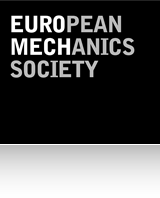584 – Multi-uncertainty and multi-scale methods and related applications
Chairperson:
Prof. Andrade Pires
Department of Mechanical Engineering of Porto University
Rua Dr. Roberto Frias,
s/n 4200-465 Porto, Portugal
phone: +351 22 5083479
fax: +351 22 508 1584
email: fpires@fe.up.pt
Co-chairperson
Dr. Chenfeng Li
College of Engineering
Swansea University
Singleton Park
SA2 8PP, Swansea, UK
phone: +44 (1792) 602256,
email: c.f.li@swansea.ac.uk
It is also true that in many scientific and engineering problems, the challenges associated with multi-scale and multi-uncertainty often arise together and even coupled, and therefore a synthesized solution approach is required. In the most general format, the proposed Colloquium timely targets the latest advances in the modelling of multi-uncertainty in multi-scale problems. The main aims of the colloquium are:
(a) To present the state-of-the-art in this field by showing the most recent developments by leading experts, and
(b) To provide a forum for discussion of current research trends and future challenges in computational multi-uncertainty and multi-scale modelling.
